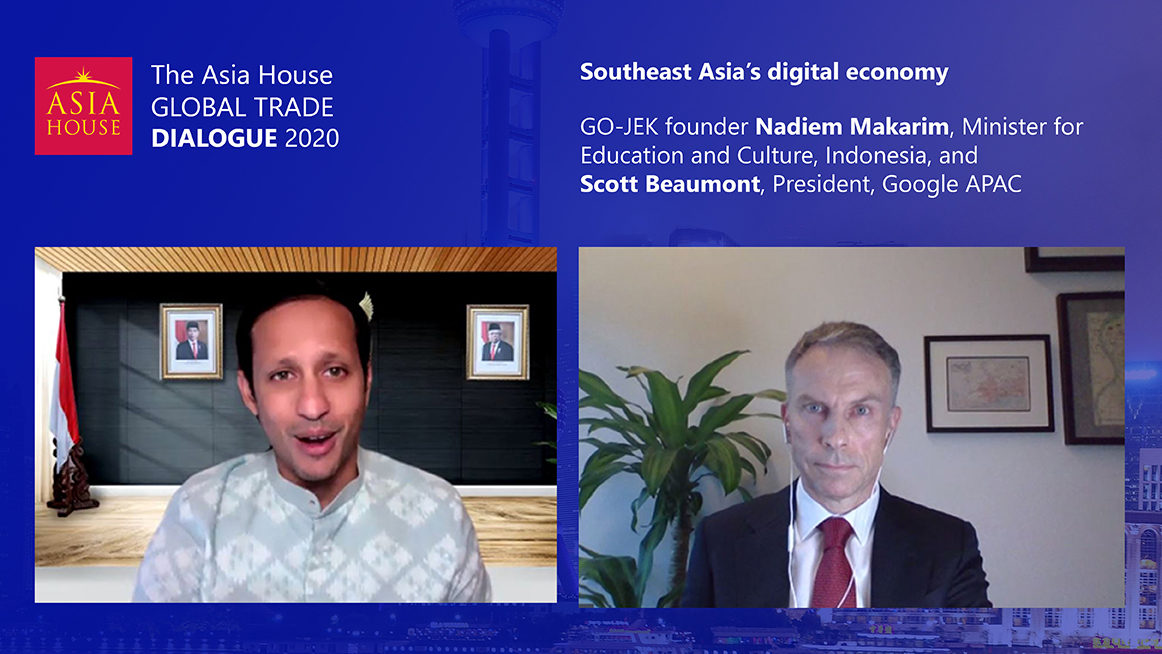Driving commercial and political engagement between Asia, the Middle East and Europe
Driving commercial and political engagement between Asia, the Middle East and Europe
Driving commercial and political engagement between Asia, the Middle East and Europe

There has been an “extraordinary” surge in internet users in Southeast Asia during the COVID-19 crisis, the President of Google Asia Pacific, Scott Beaumont, told this year’s Asia House Global Trade Dialogue.
“This year across the region we’re seeing 40 million new people come online for the first time. In 2019, that figure was ten million, so you can see the impact that COVID has had.”
Of those users, 90 per cent said they will continue to use online services beyond the pandemic, Beaumont said, shoring up Google’s 2019 forecast that Southeast Asia’s digital economy will hit US$300 billion by 2025.
“That US$300 billion number – which is three times where we are today – is definitely achievable now,” Beaumont added.
For Indonesia, this digital trend is central to the government’s economic strategy, according to Nadiem Makarim, Indonesian Minister of Education and Culture and founder of GO-JEK – the country’s first tech unicorn.
“The internet economy is extremely important to Indonesia’s growth story,” the Minister said. “We have a demographic boom, with digitally literate [young people] coming online.”
WATCH THE DISCUSSION IN FULL HERE
The challenge, however, will be in ensuring those young people have the skills to capitalise on digital opportunities. Indeed, skills and talent are among the key elements cited in a new report by Google on driving growth in Southeast Asia’s digital economy, and the area where more needs to be done, Beaumont said.
“Across the broader region, it is the talent area where we’re seeing the least progress, and where a mix of public and private enterprises and partnerships are needed to turn that around.”
Indonesia is taking “an aggressive approach” to meet this challenge, Makarim said.
“Across the world, we are dawning on this age whereby we realise that the entire economic value in this new digital world is going to depend on talent. Everyone is scrambling for talent.”
The Minister outlined some “quick moves” Indonesia is making to acquire talent, including closer engagement between universities and the private sector.
“We have to get creative in thinking about the supply of education,” he said, warning that the problem “is quickly becoming a talent crisis.”
“Talent is going to be the total factor productivity gap in both emerging and developed nations,” Makarim added. “I firmly believe that.”
Beaumont and Makarim were speaking with Asia House Chief Executive Michael Lawrence during the Asia House Global Trade Dialogue, convened on Monday 7 December 2020.
